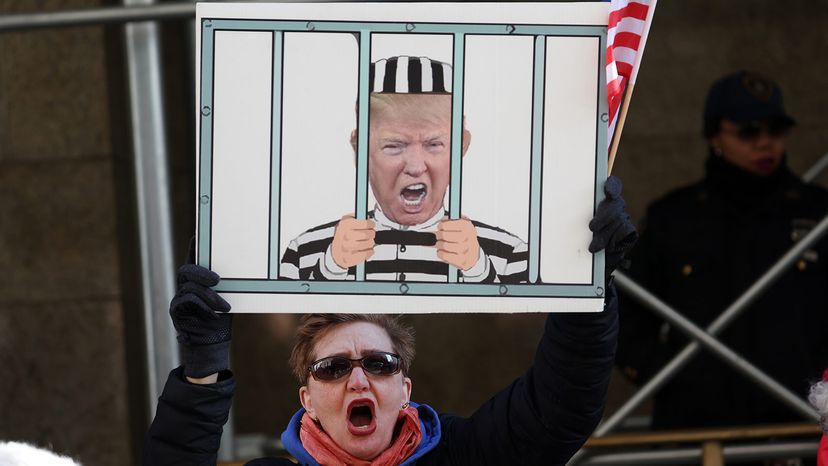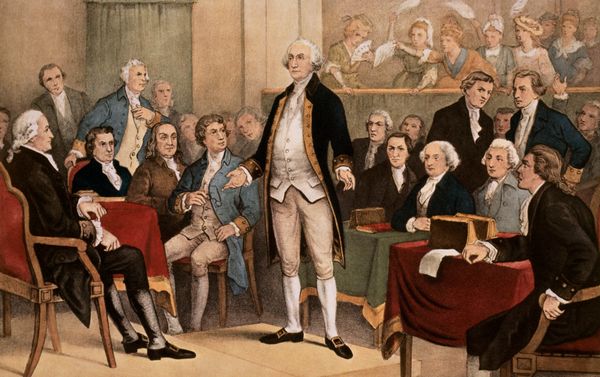As Muller said, just about anybody can run for political office in America, but is there a difference between running and winning? And if a criminal or suspected traitor is elected to office, are there other ways to remove them or disqualify them from running again?
Yes, said Muller. Impeachment is the big one. According to the Constitution, Congress has the authority to launch impeachment proceedings against "The President, Vice President and all Civil Officers of the United States." If a majority of the House votes to impeach, that's followed by a trial in the Senate. If the Senate votes to convict the official of "Treason, Bribery, or other high Crimes and Misdemeanors," the person is removed from office.
Civil officers who have been impeached by the House include 15 federal judges; three presidents (Andrew Johnson, Bill Clinton and Donald Trump who was impeached twice); a cabinet secretary and a U.S. senator, according to the U.S. House of Representatives. Only eight of this group, all federal judges, were convicted and removed from office by the Senate.
Disqualification from future office is an optional punishment with impeachment. In its history, the Senate has only barred three people from serving again in the federal government, all federal judges.
Impeachment is the only legitimate constitutional tool to bar someone from office, but that doesn't mean that Congress hasn't experimented with other methods. In the 1960s, an outspoken Harlem congressman named Adam Clayton Powell embarrassed his colleagues in the House with some "suboptimal public dealings," noted Muller.
First, the House voted to strip Powell of his committee posts, and then it took an unprecedented step — the House voted to "exclude" Powell from the next Congress. In other words, they tried to disqualify him from office. Powell sued and the case made it to the Supreme Court, which ruled that the House's actions were unconstitutional. (Powell was so popular in his home district that he was elected back to Congress with 86 percent of the vote.)
Congress could try to do the same thing with a president. In 2020, on the same day as the Jan. 6 insurrection, 147 Republican congressmen and women raised objections to certifying President Joe Biden's victory over allegations of voter fraud. Congress came close, in other words, to refusing to seat an elected president.
"You're really in uncharted territory at that point," said Muller. "If a majority of the Electoral College, which represents the people and the states, has chosen a president, it's very hard for Congress to turn around and say we're going to reject that — as a political matter, which is different from the legal question."






